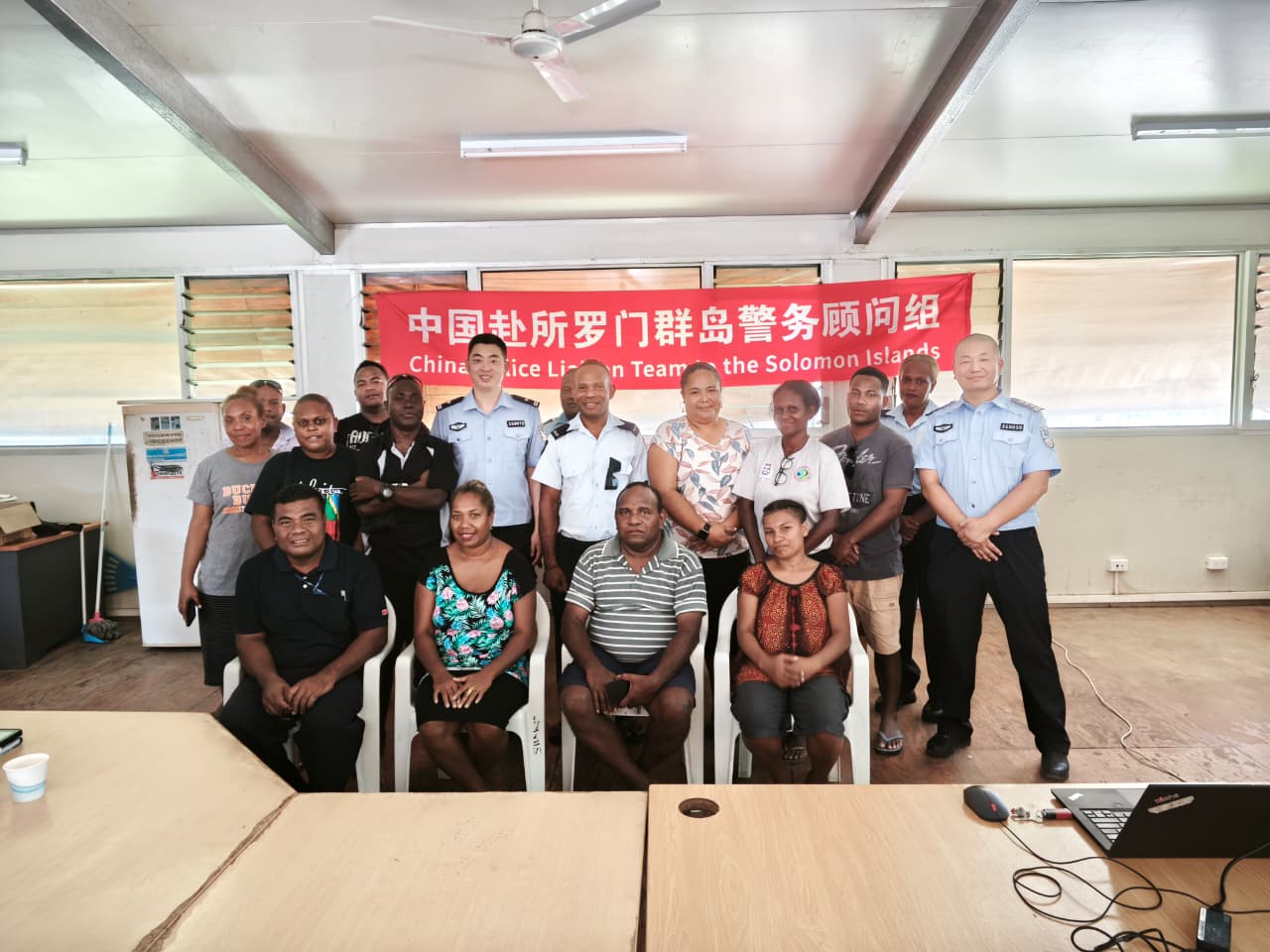
Chinese police are training local officers on how to deal with different drug-related crimes.
The training comes in the wake of drug-related arrests police made in Honiara in recent times.
“The training focused on strengthening the practical capabilities of RSIPF officers in anti-narcotics operations,” a statement police issued today said.
Assistant Commissioner (AC) of National Capital and Crime Prevention (NCCP) Simpson Pogeava said the training was facilitated by the China Police Liaison (CPLT) to give more insights to deal with different drugs.
“The training modules included the classification of new types of drugs, an introduction to drug-related plants, methods of investigating and combating drug crimes, and the proper use of drug detection reagents,” Pogeava said.
“During the training, CPLT facilitators highlighted the serious harms that drug abuse poses to individuals, families, and our societies,” he added.
“Drawing on China’s governance experience while aligning with the Solomon Islands’ legal framework and crime patterns, CPLT introduced an integrated ‘Detection–Control–Awareness’ model for combating drug-related crimes.”
Pogeava said this approach resonated strongly with participants and effectively enhanced their understanding and response capacity. Police are also working collaboratively with relevant stakeholders to deal with gaps in Solomon Islands’ drug legislation.
Criminal Investigation Officer (CIO) CPS, Police Staff Sergeant (SSgt) Zachariah Salopuka said the rising incidence of drug crimes in the Solomon Islands has become a major threat to community safety.
“This training has significantly improved the professional skills of our officers and provided new perspectives for us in tackling drug-related crimes,” Salopuka said.
This initiative represents a new milestone in the close cooperation between CPLT and RSIPF, aiming to jointly safeguard community security and contribute to building a drug-free Solomon Islands.
While police are trained to tackle illicit drugs, the Director of Public Prosecution Andrew Kelesi recently called on parliamentarians to amend the Dangerous Drugs Act (DDA), which he said contains serious legislative gaps.
Kelesi said the current law only covers offences related to the importing, exporting, and transporting of cocaine and methamphetamine.
He added the Dangerous Drugs Act is the principal legislation governing drug offences in Solomon Islands, criminalizing substances including cocaine and methamphetamine.
Methylamphetamine—commonly known as “Ice”—was added to the Act’s schedule through Legal Notice No. 101 of 1987 or Legal Notice No. 6 of 1988, making it subject to the offences outlined in Part 3 of the Act.
However, Kelesi said Part 3 only covers importing, exporting, and transporting dangerous drugs.
“Critically, the current legislation does not criminalize possession, supply, or manufacturing of these substances.
“This means that under existing law, it is not illegal to possess or even manufacture Methylamphetamine in Solomon Islands,” Kelesi said in recent published media reports.
Meanwhile, a 2022 report by the Lowy Institute in Australia warns that drug trafficking networks have already reached key agencies across the Pacific, including customs, police, and immigration, making it harder for authorities to enforce the law and keep communities safe.
